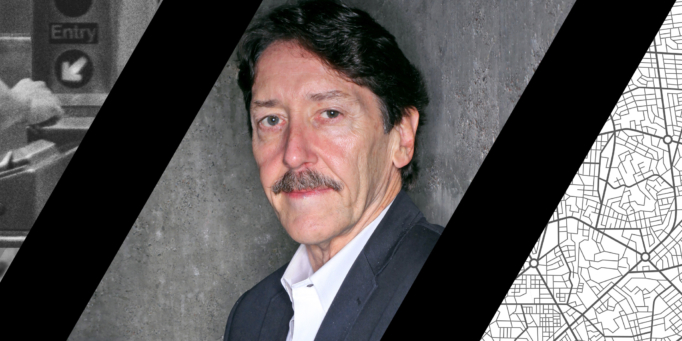
Part of the Meyer and Renee Luskin Lecture Series.
Robert Cervero works in the area of sustainable transportation policy and planning. He has consulted on numerous transportation and urban planning projects worldwide, most recently advising long-range planning in Dubai and Singapore. His most recent book, Beyond Mobility, won the 2019 National Urban Design Best Book Award. Dr. Cervero was a member of Berkeley’s city and regional planning faculty from 1980 to 2016, where he twice served as Department Chair, was the inaugural holder of the Carmel P. Friesen Chair in Urban Studies, and directed both the University of California Transportation Center and the Institute of Urban and Regional Development. More recently he has held visiting faculty appointments at Tongji University in Shanghai and NYU-Abu Dhabi. During his doctoral studies in urban planning at UCLA, he worked under the supervision of his long-time mentor, Martin Wachs.
Martin Wachs’ seminal 1973 paper on accessibility as a social construct continues to influence urban planning policy and practice a half-century later. It also shaped a generation of research on, broadly speaking, the ‘transport-land use connection’, including my own. This talk probes a number of policy initiatives that implicitly aim to enhance physical access but for which social equity has been at best secondary and all too often an afterthought. Included here are regional jobs-housing balance initiatives, reverse-commute transit services, transit-oriented development (TOD), and formalization of public transport in a developing world context. Here I’ll revisit my own past work as well as that of others on such policy initiatives, drawing from global experiences, both empirically and inferentially. Policy reforms for advancing both physical access and social equity are reviewed and critiqued. The popularized movement toward the 15-minute city, for example, suggests a future of increased micro-mobility, creating new types of accessibility challenges, such as curb-access management. Implications of unfolding megatrends on accessibility and social equity in an increasingly resource-constrained, public-health conscientious world are discussed.
Check-in begins at 5:30pm with the discussion following at 6:00pm.
Public transportation: Big Blue Bus (Routes 2 and 17), Culver CityBus (Line 6), Metro
Ridehailing locations: Gateway Plaza, Luskin Conference Center
On-site parking available for $14 (Lot 2, Lot 8)



